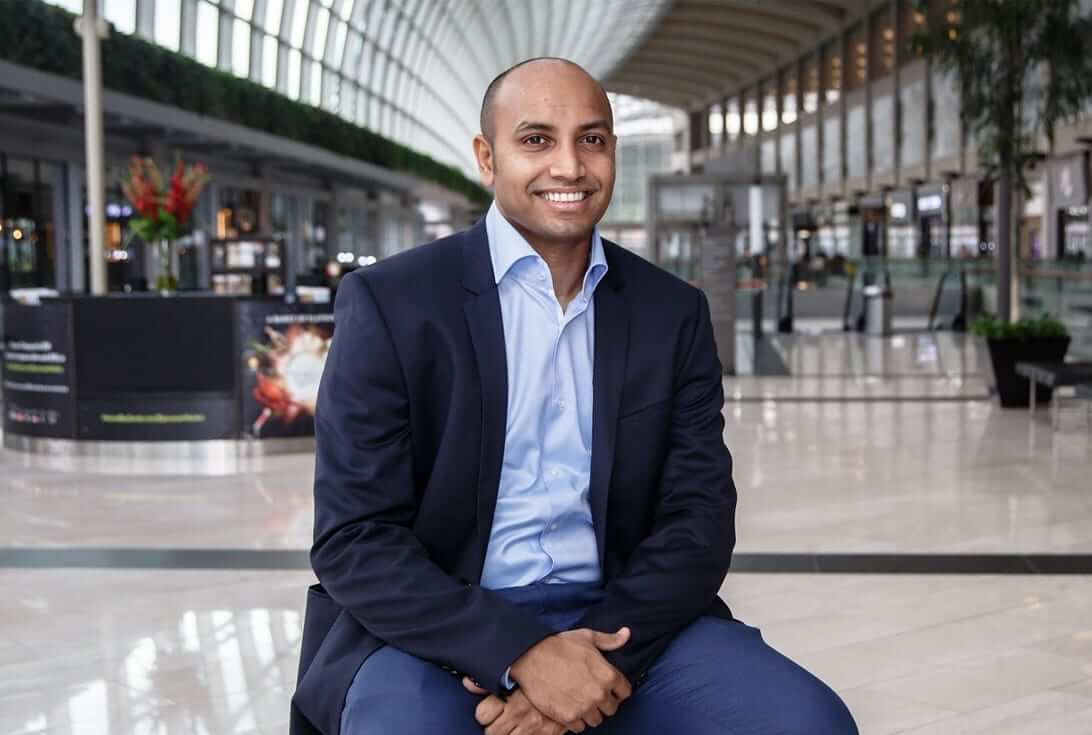Can a well-established industry be disrupted? Prajit did just that with InstaReM.
What’s your story?
As a sales and consulting professional with a couple of leading global business-processes outsourcing firms in India, I had nothing to do with international money transfers for most of my career. An accidental personal experience got me thinking about a problem that was so huge and so universal.
I was trying to organise a bachelor party at a resort in Phuket for a friend. I picked a terrific spot and needed to send INR 40,000 (US$640) to book the resort. The resort asked me to send money to their account as a bank-to-bank transfer. I didn’t think much about it until my bank asked for extensive documentation to transfer a not-so-huge amount. Arranging all documents would have taken a lot of time and effort. Luckily, I found an Indian friend based in Thailand, that I could transfer money to his bank account in India, and he paid the resort in Thai Baht.
Later, the friend revealed that he had sent money to India every month and his bank was charging a fortune for the service and was even taking an FX spread on top of it! This was my first glimpse into the problem, which was so real and universal.
This incidence got me thinking about how I could convert this problem into a successful business. There was a clear need and a gap in cost-efficiencies of cross-border remittances. Michael Bermingham, InstaReM’s co-founder with extensive experience in compliance, and I got together and after much deliberations, started InstaReM (Instant Remittances, for short) in August 2014.
What excites you most about your industry?
The idea of disrupting an established industry and bringing about cost-efficiencies in cross-border money transfers excites me the most. Unfortunately, the traditional methods of remitting monies have been unreasonably expensive, and in many corridors, frustratingly time-consuming. Leakages in money transfers in various corridors range from 5-8%; can even go up to 9-12% in certain corridors when transfer fees and FX spreads are added up.
Recipients in the destination country typically get less than what was sent. Remitting money back home must not be so expensive for the people who migrate overseas in search of better quality of life. This, in a way, negatively affects the quality that they have been otherwise aspiring for.
With its enormous size and user pain points, the remittances sector had been waiting for disruption.
By application of innovative financial technologies and building global banking partnerships, InstaReM is challenging the stronghold of the traditional players. Leveraging the peer-2-peer model, InstaReM’s digital platform is disrupting global remittance business. We are able to transfer money across borders much faster – and at fraction of costs compared to the traditional players. With savings on remittance, recipients in the developing countries can afford better healthcare, better education and better quality of life. Thus, with our service, we are empowering migrants and families to #DoMore.
What’s your connection to Asia?
Asia is where my roots are. I was raised in Mumbai, India, and have spent a decade of my professional career with some of the top multinational corporations there. InstaReM started its journey in 2015 by serving Indian/Asian migrants in Australia. To expand our business, we decided to focus on Asia-Pacific corridors and selected Singapore as our global headquarters. Thanks to Singapore government’s support to innovation and entrepreneurship in technology space, InstaReM is one of the leading digital cross-border money transfer service providers in Asia-Pacific with growing presence in Australia, Singapore, Hong Kong, Malaysia and India. We are already working on licenses in other Asian corridors like China, Japan and Indonesia. We have recently expanded our footprint into Europe and North America. InstaReM’s global business is supported from our operations office in Mumbai, which is InstaReM’s largest office globally.
Favourite city in Asia for business and why?
My favourite city in Asia for business is Singapore. While it is ideally located between the East and the West, the Monetary Authority of Singapore (MAS) provides a responsive and forward-looking regulatory approach that enables promising fintech innovations to develop and flourish. That is the reason why we chose Singapore as the company’s global headquarters after starting operations in Australia. Our decision to base InstaReM in Singapore has paid off well. As the financial hub of the region, Singapore has a fintech-friendly regulatory framework and has been a good springboard for us to expand into other Asian markets. Backed by government and private funding, and supportive regulatory bodies that promote innovation and sandboxing, the country has leveraged its well-developed infrastructure to create a controlled, yet thriving, Fintech ecosystem. Singapore, along with other ASEAN members, have some of the largest expatriate and migrant communities in Southeast Asia who are our target demographic.
What’s the best piece of advice you ever received?
Always focus on the customer and never on the competition. Trust me, it has worked wonders for us.
Who inspires you?
Inspiration comes from various sources. The story of Amazon founder Jeff Bezos inspires me to believe that one can disrupt a well-established industry, which has otherwise functioned well for decades. The life of Apple founder Steve Jobs inspires me to believe in innovation and emphasize upon user experience. People like Bill Gates and Azim Premji inspire me to believe that it’s more important to use your wealth wisely for the betterment of the world. I still get inspired by the superheroes – how about Superman? – who do things that look seemingly impossible. Well, nothing is impossible!
What have you just learnt recently that blew you away?
Do you know that an iPhone 8 would cost US$ 30,000 to US$ 100,000 if it was made in America? That’s so much for the labour arbitrage.
If you had your time again, what would you do differently?
Experience makes us wise. An entrepreneur’s journey is not easy, or not as easy as I had earlier imagined. During these 40 months of long hours and no breaks of running a rapidly expanding start-up, I’ve had to endure broken friendships, heart breaks, lack of family-time, etc. And yes, some people who really didn’t work out for me. If I had my time again, I would be a learned man;) I, for one, would select my people wisely.
How do you unwind?
I involve myself in activities that help me recover, rejuvenate and recharge to take on the next set of challenges. I have been an athlete and love indulging in the game of cricket. I also read to unwind – fiction, people, places, technology and business. Sometimes, I try my hand at cooking and feel amazed how different ingredients combine to create something so uniquely pleasant. I also love to listen to music – everything from classical to popular. Traveling is another way I unwind, though of late business travel has got on my nerves ;). Spending quality time with family and friends is another desired way for me to unwind.
Favourite Asian destination for relaxation? Why?
Of all the places I have travelled, Bali is my favourite destination in Asia for relaxation. Bali has everything you need for a break from the routine. From sitting by the beach and sipping a cocktail to cycling your way through the hills, it can make for a perfectly relaxing trip. Moreover, the locals are extremely welcoming. I love the ocean, and adventure is also a way for me to relax. Snorkelling through the reefs and scuba diving in the deep makes the experience perfect for me.
Everyone in business should read this book:
My recent favourite is “The Everything Store: Jeff Bezos and the Age of Amazon” by Brad Stone. Everyone in the Internet and brick-and-mortar businesses must read this book to understand how one man foresaw the potential of internet to completely disrupt the way we shopped and way the retail industry functioned just a decade ago.
Shameless plug for your business:
InstaReM guarantees you the Best Transfer Amount to your recipient. Try beating it!
How can people connect with you?
Via – https://www.linkedin.com/in/prajitnanu/ or tweet me on https://twitter.com/prajitn
Twitter handle?
https://twitter.com/prajitn
—
This interview is part of the ‘Callum Connect’ series of more than 500 interviews
Callum Laing is an entrepreneur and investor based in Singapore. He has previously started,
built and sold half a dozen businesses and is now a Partner at Unity-Group Private Equity and Co-Founder of The Marketing Group PLC. He is the author two best selling books ‘Progressive Partnerships’ and ‘Agglomerate’.
Connect with Callum here:
twitter.com/laingcallum
linkedin.com/in/callumlaing
Download free copies of his books here: www.callumlaing.com

































